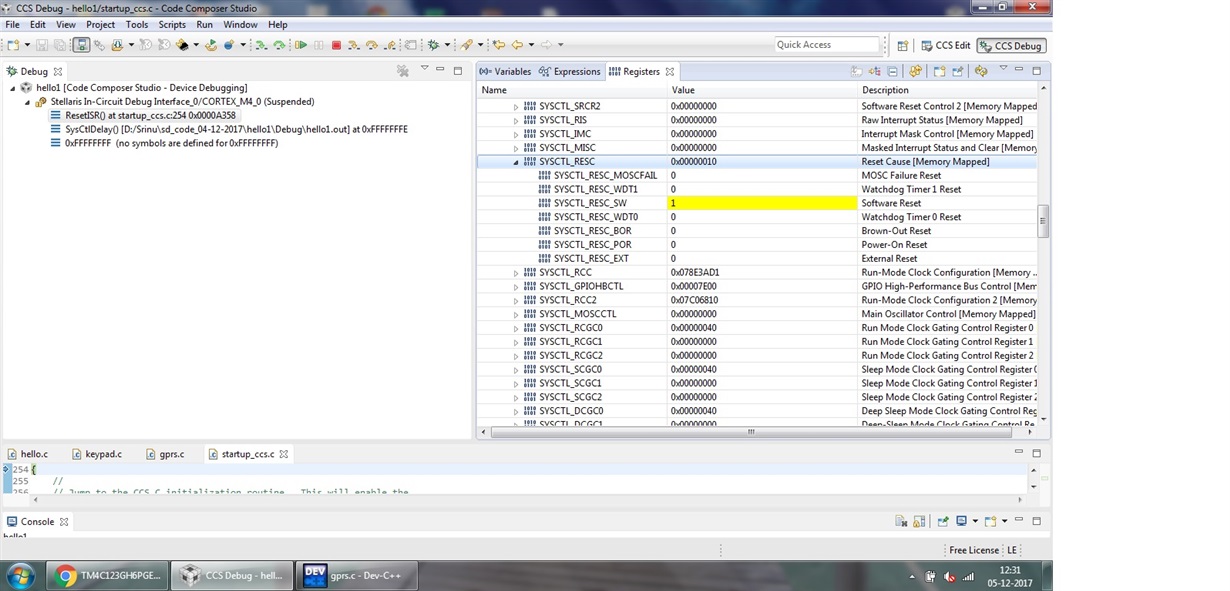Tool/software: Code Composer Studio
Good afternoon every one,
I developed my code for one of my embedded application by using TM4C123GH6PGE Microcontroller. My code is working fine but after executing the code, with in few seconds its getting reset interrupt by the compiler (code composer studio V6) and it stops the debugging and again its starts from first instruction.
When reset interrupt occurs the it automatically going to startup_ccs.c and showing me like this statements below.
void
ResetISR(void)
{
//
// Jump to the CCS C initialization routine. This will enable the
// floating-point unit as well, so that does not need to be done here.
//
__asm(" .global _c_int00\n"
" b.w _c_int00");
}
I request you to please tell me why this problem is occurring in my code and please suggest me how to solve this problem with out disturb my flow of code sequence.
Thanks in advance.


